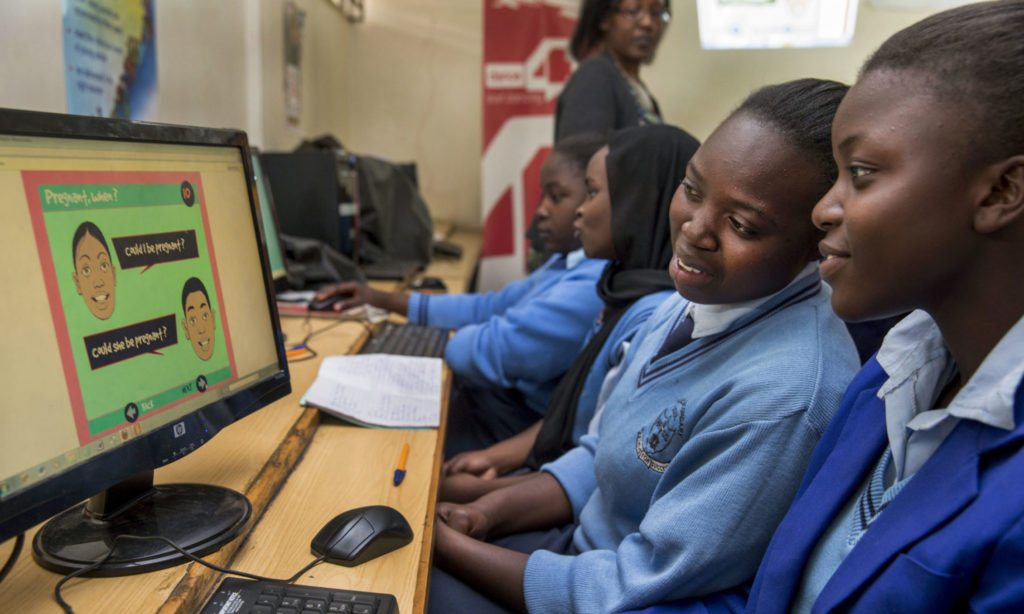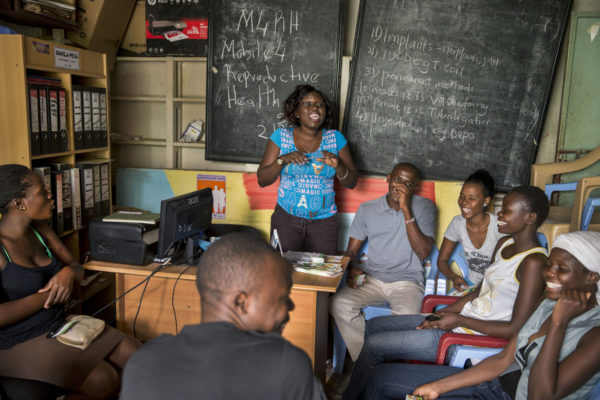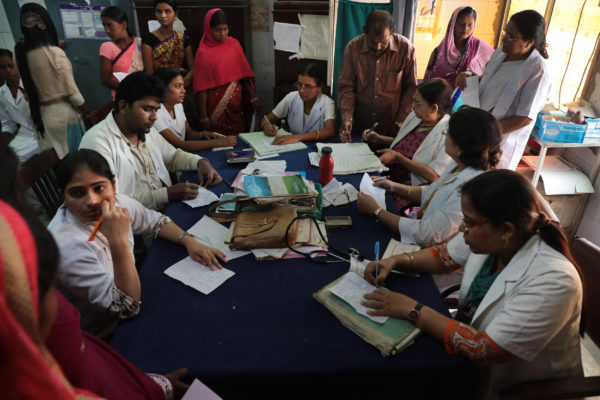Remote Facilitation Among FP/RH Professionals
Takeaways from our first Learning Circles experience

These are exciting times. There’s never been more attention paid to the science of learning. Similarly, there’s never been more technology and tools to support learning. The impact of the COVID-19 pandemic plunged the world into rapid responses and solutions to nearly everything, including distance learning and virtual collaborations in global health. In spite of all the interest in individual know-how and learning, capturing and sharing tacit program knowledge remains a significant challenge and requires social interaction. This is exactly what Knowledge SUCCESS set out to change with the introduction of the Learning Circles regional cohort series.
The family planning and reproductive health (FP/RH) community has long identified the sharing of tacit knowledge as essential to improving implementation and program outcomes.
Learning Circles embodies informal, cross-organizational knowledge and information sharing that aligns with regional context. FP/RH professionals call for new ways to access and use evidence and best practices to optimize FP/RH programs. This need, identified by FP/RH professionals in Knowledge SUCCESS’s regional co-creation workshops, shaped the Learning Circles model, which positions cohort members as the experts. This model creates collaboration channels between peers, programs, countries, and regions for sharing real-world implementation knowledge and experience about what works—and does not work—in FP/RH programs.

What Is Learning Circles?
Learning Circles is a highly interactive, regionally focused, small group-based learning model. It guides mid-career program managers and technical advisors working in FP/RH through supportive discussions into what works and what doesn’t work in program implementation. Guided by Knowledge SUCCESS facilitators, the first cohort of 38 FP/RH professionals—a tough selection from over 200 applicants—joined virtually from 11 countries within English-speaking sub-Saharan Africa over three months. The topic of focus was the shifting reality of FP/RH services amid COVID-19, with several subtopics, including:
- Self-care.
- Supply chain.
- Access and quality.
- Gender-based violence.
- Policy and advocacy.
Cohort participants experienced a range of facilitation and brainstorming techniques—including four intensive strategies: Rose, Bud, Thorn; affinity clustering; challenge statements; and 15% solutions—to learn from one another and provide their own expertise within the subtopic groups and eventually as a full cohort.
What Did We Learn?
As much as Learning Circles is a learning opportunity for participants, it is equally a learning opportunity for facilitators. We share below what worked well for remote facilitation and our recommendations for remote facilitation based on our experiences. (Hover over each box for lessons.)
LIVE SESSIONS
Live sessions get people actively participating, especially when facilitators actively prompt the participants.
SET THE TONE
A light-hearted tone, with music to open sessions, icebreakers, and pictures keep people active.
LEVERAGE SOCIAL PLATFORMS
WhatsApp groups with all cohort members and facilitators allow for quick communication and updates and resource-sharing between members.
PRACTICE
Providing opportunities for participants to practice with the technology before live sessions ensures they are comfortable with the tools.
MAKE TIME
It’s important to give people time and space to have open discussions so they can dive into deeper conversations.
USE TOOLS
Tools like Zoom Annotate, Google Jamboard, and Google Slides provide a great opportunity to actively engage participants. Have backup methods for people logging in via mobile phone users, like using the chat.
DESIGN STAND-ALONE ACTIVITIES
While encouraging regular participation, design activities that participants can engage with even if they miss a previous session, especially for longer-term programs.
GENERATE ORGANIC TOPICS
If pre-determined subtopics don’t meet the needs of the participants, allow them to generate their own based on their experiences and interests.
What’s Next?
The Learning Circles facilitation team is redesigning the program based on the excellent participant feedback and our own learning from this first cohort. We also created an FP insight collection to compile the resources shared with the first cohort. This collection will live on for cohort members, as well as colleagues around the world, to contribute to and use as needed. The next Learning Circles cohort with Francophone Africa and the Caribbean will launch in October 2021, followed by an Asia regional session.

Conclusion
Our first sub-Saharan Africa Learning Circles cohort—with over 200 people, who signed up to participate—demonstrated that FP/RH professionals crave opportunities for dialogue with their peers. In addition, our experience showed that virtual sharing of tacit knowledge in FP/RH programs is doable, desired, and need not be overly complicated or demanding. Our participants highly value the opportunity to simply meet, share, listen, and problem-solve with other FP peers—even if temporary and virtual. Ultimately, our first Learning Circles experience embodied collaboration and adaptability; it’s the only way to know we’re really learning.
We hope these lessons will be useful in guiding the development of future knowledge translation strategies in our global FP/RH community.
For more knowledge translation strategies, check out Knowledge SUCCESS’s other knowledge management innovations.





